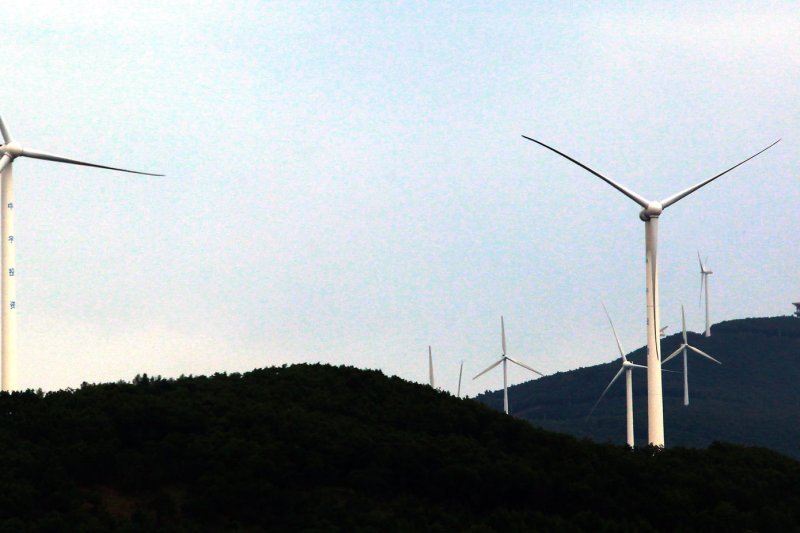The European Union's record-keeping office reports the bloc is within reach of its renewable energy goals for the end of the decade. File photo by Stephen Shaver/UPI. |
License Photo
March 14 (UPI) -- Members of the European Union are about 3 percentage points away from meeting their 2020 objectives for renewable energy, its statistics office reported.
Members of the EU agreed to a benchmark of 20 percent for a share of renewable energy on their grids by 2020. Eurostat, the bloc's record-keeping office, said the share of renewable energy in final consumption in 2015, the last full year for which data are available, was 16.7 percent, twice the level from 2004.
European energy consumption was below its peak from 2006 by a little more than 11 percent, Eurostat reported. Nearly 75 percent of that demand, however, was supported by fossil fuels. Renewable energy as a share of consumption varies widely, meanwhile, with Sweden getting more than half of its energy from low-carbon sources and Luxembourg and Malta setting the low mark with a share of 5 percent.
Fossil fuels are the dominant source of energy, although usage rates have declined steadily in the 15-year period ending in 2015.
Since 1990, the regional gross domestic product grew by 50 percent, while emissions declined 22 percent, showing the European economy was decoupling from fossil fuels.
"Renewables will continue to play a key role in helping the EU meet its energy needs beyond 2020," Eurostat's report read. "For this reason, member states have already agreed on a new EU renewable energy target of at least 27 percent by 2030."
The European Union's trajectory contrasts with a U.S. energy policy guided by President Donald Trump, who put more energy on fossil fuels during his early tenure. The United States is the world's leading economy and China, the No. 2 economy, said Washington was wasting an opportunity with its shift in focus.















